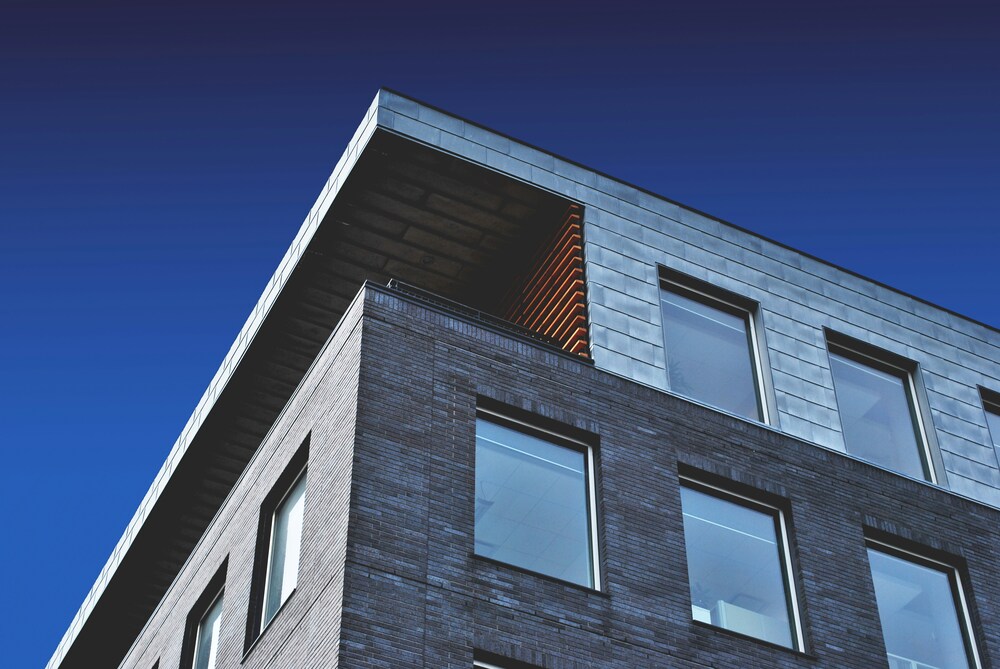- Home
- Articles
- Architectural Portfolio
- Architectral Presentation
- Inspirational Stories
- Architecture News
- Visualization
- BIM Industry
- Facade Design
- Parametric Design
- Career
- Landscape Architecture
- Construction
- Artificial Intelligence
- Sketching
- Design Softwares
- Diagrams
- Writing
- Architectural Tips
- Sustainability
- Courses
- Concept
- Technology
- History & Heritage
- Future of Architecture
- Guides & How-To
- Art & Culture
- Projects
- Interior Design
- Competitions
- Jobs
- Store
- Tools
- More
- Home
- Articles
- Architectural Portfolio
- Architectral Presentation
- Inspirational Stories
- Architecture News
- Visualization
- BIM Industry
- Facade Design
- Parametric Design
- Career
- Landscape Architecture
- Construction
- Artificial Intelligence
- Sketching
- Design Softwares
- Diagrams
- Writing
- Architectural Tips
- Sustainability
- Courses
- Concept
- Technology
- History & Heritage
- Future of Architecture
- Guides & How-To
- Art & Culture
- Projects
- Interior Design
- Competitions
- Jobs
- Store
- Tools
- More
Eco-Friendly Home Improvements That Can Increase Property Value

Table of Contents Show
Eco-friendly home improvements enhance property value and reduce environmental impact. Many buyers prefer upgrades that contribute to energy efficiency, leading to a higher sales price. Homes with smart systems and efficient resource use are financially attractive and environmentally responsible.
Energy Efficiency as a Selling Point
High energy-efficiency ratings are key factors in real estate valuations. Homes with superior energy performance often command higher prices, reflecting a trend towards sustainability. Energy-efficient upgrades are cost-effective for homeowners and meet buyer preferences. Energy Star-rated windows and appliances are particularly valued, with more than 80% of buyers preferring these options. Such features help reduce energy consumption while maintaining comfort.
Solar panels are a valuable investment for homeowners, enhancing value and lowering electricity bills. They allow homeowners to leverage government incentives while offering future savings by reducing grid dependency. Geothermal heating and cooling systems use the earth’s energy for efficient climate control with minimal maintenance. This technology is praised for its long lifespan and appeal to eco-conscious buyers. Energy-efficient HVAC systems also offer a notable return on investment.

Energy-efficient windows and doors contribute to the appeal of eco-friendly homes by minimizing heat loss and optimizing energy consumption. Buyers prioritize comprehensive home Energy Star ratings, illustrating comprehensive energy-efficient strategies. Homes with green features, like double-pane windows and smart thermostats, tend to sell faster due to increased consumer awareness of sustainability. Understanding popular solutions and why homeowners opt for green upgrades can give you a clearer picture of what drives value in today’s housing market. This will help you answer the question how much is your property worth and how much it would be enhanced by eco-conscious features. Energy-efficient improvements not only reduce utility costs but also make your home more attractive to modern buyers. In competitive markets, these upgrades can become a key differentiator.
Integration of Green Technologies
Sustainable enhancements often include smart home systems that regulate energy consumption by syncing with eco-conscious items, like geothermal systems or Energy Star-rated appliances. These systems optimize utility usage through programmed patterns. Contemporary eco-friendly home design also sees the implementation of rainwater harvesting systems, which store precipitation for future use, reducing reliance on public water supplies. These technical adjustments add value and support environmental sustainability.
Practical steps like choosing energy-efficient doors and windows enhance thermal insulation and acoustic comfort. Homeowners show keen interest in these features. Similarly, designing outdoor spaces with indigenous vegetation reduces watering needs, supports biodiversity, and enhances property aesthetics. These elements attract buyers seeking environmentally responsible homes. Using a home value estimator can provide insights into the impact of renovations on resale potential, considering market-specific variations.
Heating, Smart Solutions, and Innovative Features
Efficient heating and smart solutions amplify property value. High-efficiency water heaters, like tankless or heat pump models, entice buyers seeking reduced energy consumption. Efficient heating results in lower operational costs and a smaller carbon footprint. Smart thermostats offer a forward-thinking approach to energy management, adapting to user routines to balance comfort and conservation. Homes with smart thermostats appeal to tech-savvy audiences and influence market demand. The integration of intelligent systems aligns with consumer preferences for planet-conscious choices, although not always at a premium cost.

Real estate experts highlight that promoting energy-efficient options enhances listings and marketability. Homebuyers value environmentally friendly installations and seek certification programs like LEED and HERS to verify sustainability claims. Working with real estate professionals skilled in green home marketing can be invaluable, ensuring eco-friendly features are recognized and appreciated.
Market Demand and Regional Preferences
Regional differences are key in evaluating the return on investment for eco-friendly home improvements. In the Western United States, solar panels boost property valuation. Real estate professionals note environmentally responsive features align with regional economic patterns and local buyer priorities. Electric vehicle charging stations increase property appeal across various regions, speeding up sales.
Variations in environmental priorities may influence market interest levels, but widespread awareness of energy savings and incentives fuels demand for eco-friendly homes. Legislative measures like the Inflation Reduction Act support the adoption of energy-efficient systems through tax credits and rebates. Fiscal benefits encourage homeowners to invest in sustainable upgrades, making regional differences in market interest less pronounced. Government policies increase the potential for higher returns on eco-friendly improvements.
Eco-friendly home enhancements are central to real estate value progression. Buyers show strong interest in sustainable living solutions, indicating a lasting market shift. Pursuing such upgrades aligns with responsible environmental stewardship and secures financial growth through higher property values.
illustrarch is your daily dose of architecture. Leading community designed for all lovers of illustration and drawing.
Submit your architectural projects
Follow these steps for submission your project. Submission FormLatest Posts
Top 10 Most Inspiring Women in Architecture
Explore the remarkable achievements of women in architecture who transformed the profession...
Acropolis of Athens: Architecture as a Political and Cultural Statement
From the Parthenon to the Erechtheion, the Acropolis of Athens stands as...
How to Understand Rental Appraisals: A Full Guide
Rental appraisals are essential for setting competitive rent prices and maximizing investment...
10 Things You Need To Do To Create a Successful Architectural Portfolio
Discover 10 essential steps to create a successful architecture portfolio. From cover...












Leave a comment